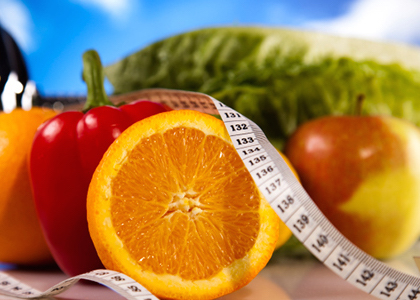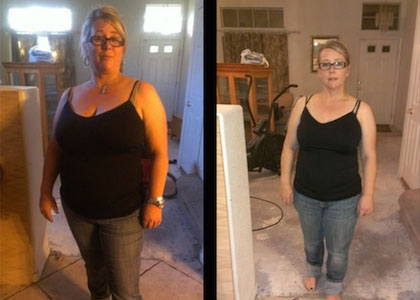
8 Tips to Help You Naturally Lower Your Cholesterol
By Claire Georgiou, Reboot Naturopath, B.HSc ND
We all know that our diet can cause high serum cholesterol and triglycerides but did you know you can lower your bad (LDL) cholesterol and improve your good (HDL) cholesterol with simple dietary changes?
Cholesterol is essential for life and health. Cholesterol is an important ingredient for the formation of cell membranes, hormones, bile acids and Vitamin D. Cholesterol is predominantly made within the liver, intestines, adrenals, ovaries and testes and a portion is also derived from the diet but too much bad cholesterol combined with inflammation can increased our risk of heart disease.
Why is “good” cholesterol good and “bad” cholesterol bad?
There are 2 main types of cholesterol.
1. LDL (low-density cholesterol) which is often called “bad” promotes fat in the blood stream
2. HDL (high-density cholesterol) often called “good” helps remove excess LDL cholesterol and triglycerides from the bloodstream thus protecting our heart health
The higher the LDL to HDL ratio, the higher the risk for the development of atherosclerosis (the hardening and clogging of the arteries which increases the risk of cardiovascular disease).
Changing your diet to reduce your cholesterol levels is the best plan of action. One of the best ways to jumpstart a diet change is by participating in a Guided Reboot. Learn more about this life-changing weight-loss program. Medications can have long-term side effects while making long-term healthy lifestyle and dietary changes will reduce your cholesterol, but will also improve your overall health.
8 Tips to Naturally Reduce Your Cholesterol:
1. Eat and Drink More Colors
Fruits, vegetables and herbs help lower LDL cholesterol. A few particularly helpful ones are garlic, onions, apples, pears, avocados, berries, cabbage family vegetables, dark leafy greens and eggplant. Fruits and vegetables contain high levels of antioxidants that protect the circulating cholesterol from oxidizing which is when it becomes particularly harmful. Fruits and vegetables also contain soluble fiber and phytosterols.
2. Include Phytosterol-rich Foods
Foods rich in phytosterol bind with cholesterol within the intestines and reduce the absorption of LDL cholesterol. Phytosterols are similar to cholesterol in structure and have a cardiovascular protective effect. Include phytosterol-rich foods such as almonds, pistachios, walnuts, macadamias, sunflower seeds, pumpkin, sesame seeds, flaxseeds, avocados, and cold-pressed oils such as flax, sesame, pumpkin, sunflower and olive oil.
3. Increase Fiber Intake
Soluble fiber is particularly helpful for reducing cholesterol absorption in the intestines. Good sources of soluble fiber are oats, barley, legumes, psyllium husks, chia seeds, flaxseeds, peas, squash, carrots, cabbage family vegetables and pectin containing fruits such as apple, strawberries, grapes and citrus fruits. Soluble fiber is still present in fresh juices!
4. Increase Essential Fatty Acids
HDL cholesterol increases when we consume more essential fatty acid foods such as oily fish, walnuts, flaxseeds and chia seeds. Here is more information on the good fats vs. bad fats.
5. Reduce Saturated Fats
Too much saturated fat can increase your cholesterol levels. Eating too much sugar and refined carbohydrates can also attribute to this as these are converted into saturated fat. Avoid full-fat dairy, fatty meats, sugar-laden foods and refined white carbohydrates in excess.
6. Avoid Trans-fats
Trans-fats may increase bad cholesterol, lower good cholesterol, increase clotting factors and promote inflammation, giving it the greatest detrimental effect on your cardiovascular health. These are found in processed foods like margarine, greasy fast foods, processed vegetable oils and any baked goods containing hydrogenated vegetable oil, partially hydrogenated vegetable oil or vegetable fat such as pastries, cakes and biscuits.
7. Maintain A Healthy Weight
Excess weight boosts harmful LDL and inactivity depresses protective HDL. Lose weight if needed and exercise more! Need help losing weight? Check out our popular Guided Reboot Programs where a nutritionist will guide you on a weight loss program.
8. Decrease Stress Levels
When our bodies are under stress, we tend to manufacture more cholesterol. Learn how these anti-inflammatory foods can help you stay stress-free.
 Hear from a real success story who was able to drastically lower her cholesterol during a Reboot:
Hear from a real success story who was able to drastically lower her cholesterol during a Reboot:
Shannon Loses Weight, Gains Energy and Lowers Cholesterol